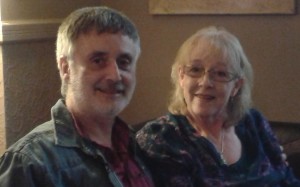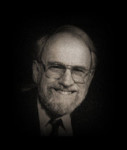Coaching, Counselling and Therapy, Online and in Chorley
Over the years there has been much discussion as to whether there is a real difference between what is called Counselling, and what is called Psychotherapy.
From your point of view, as a client, interested in knowing about RESULTS rather than methodology, there is no difference in results between what people call counselling and what they call psychotherapy. So I use the term psychotherapy – in common with many other therapists – to refer to a longer term process that reaches further into our ways of “doing life” than counselling, and uses the same methods.
In practice, then, psychotherapy is a longer process than counselling, and reaches deeper because of that, but otherwise there is little difference.
 If you would like some more information on what you might expect from longer term therapy, Jim Bugenthal had a great way of describing the stages that you will pass through, and showing what you might expect:
If you would like some more information on what you might expect from longer term therapy, Jim Bugenthal had a great way of describing the stages that you will pass through, and showing what you might expect:
The First Part of therapy, which I would call Counselling, describes the relief of the symptoms that brought you into therapy in the first place. This involves (in this order, usually)
Adjustment – the removal of the distressing symptoms that brought you to ask for counselling, without a basic change occurring in the way you look at life
Coping Effectiveness – you will notice you are coping better than before with the difficulties in your life, and life will become simpler
Ego Renewal – That piece of “psychobabble” refers to the very real good feelings you will discover you have developed about yourself, and about your increased ability to face whatever life throws at you.
You may well consider finishing here, or even before this point, having reached the personal goals that you had at the start of therapy. We respect your choice to finish here, of course, but we do want you to know that there is much you might gain by continuing the process:
The Second Part of therapy, which I call Psychotherapy, which describes the process of Growth, by which I mean becoming more and more of who you actually are. As we work together, you will discover (in this order, usually)
Growth in personal and interpersonal actualisation – You will notice a change in the way you experience the world, where you become less controlling of what’s happening, and less needing to understand everything and everyone – in the process you will find you become happier to be you, and happier for others to remain themselves.
Existential emancipation – a very grandiose term for the amazing discovery of the “real you.” At present, you will probably recognise several “yous” – for instance the different ways you relate to the world in different parts of your life (the ‘hats’ you wear), the picture you have of a near-perfect you, and the dark and feared you that you try your best to avoid and keep others from finding out about. As we progress, you will discover that there is a much bigger “real you.” You will stop pretending to be the fragments of yourself, although you will retain the ability to wear an “old you” to do your job and relate to people passing through your life.
Transcendence – by which is meant an intuitive understanding of the Big Picture. The big picture is first you, then your life in context, then the world in context, and so on. In a sense it never ends, and you will become content with that. You will no longer identify with the person who first came to therapy, yet in a sense you will know and love that person, yourself, more than ever before. Therapy is an experiential process, and the meaning of all these stages will only truly become clear as you discover them for yourself.
Here is a short list of the qualities you will begin discover in yourself as the second stage of therapy unfolds. I found this list inspiring – if you do too, then it’s worth considering carrying on.
See how-life-is more clearly and become more comfortable in it,
Becoming more accepting about yourself, others and nature,
Acting with spontaneity, simplicity and naturalness, just because,
Become more involved with world problems and less involved with personal problems,
While being involved in life, you will also notice a quality of detachment, and a need for privacy,
Decide what you want to do, and do it,
Have a joy in the simple and the natural,
Are familiar with peak experiences,
An increasing feeling of togetherness with the whole of mankind,
Have deeper and more profound interpersonal relations than before,
Come to believe in the equal nature of all human beings,
Know the difference between means and ends, and good and evil,
Have a gentle sense of humour, free from sarcasm and the demeaning of others,
Become even more creative,
Find your own way more, rather than following the herd,
Becoming more comfortable, accepting and even loving of the imperfections in your own nature.
Like any journey, it is important that you know you are going in the right direction. You are free to stop or restart at any time, to rest, to take stock, or having changed your mind.
Our Services:
Counselling (more about counselling)
Psychotherapy (more about psychotherapy)
Life-skills coaching (more about coaching)
Counselling and Coaching for Men – with David (more about working with men)
Relaxation Training (more about relaxation)
Mindfulness Training (more about mindfulness)
Between us, we have a wealth of training and experience, and we walk our talk.
Do check Sue’s page (link) and David’s page (link) for more information about our personal qualifications.
